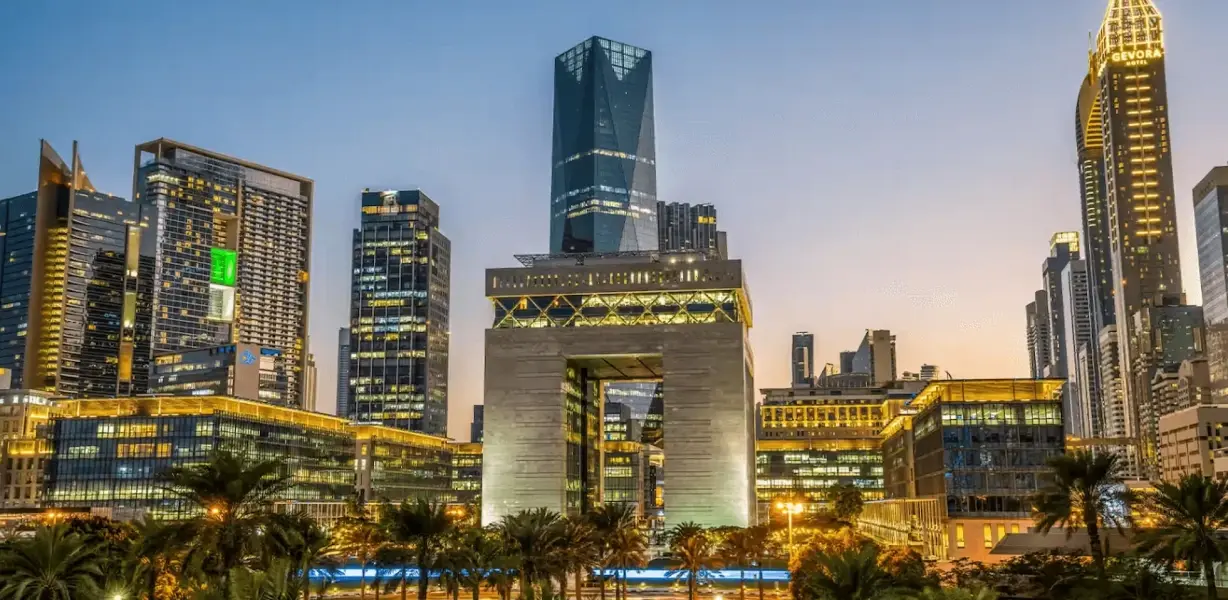Dubai — the shimmering jewel of the United Arab Emirates — has rapidly evolved into one of the world’s most influential financial centers. From being a small trading hub in the desert to becoming a global magnet for investors, entrepreneurs, and financiers, the city’s transformation is a remarkable success story. Among its thriving industries, investment banking in Dubai has become a cornerstone of economic growth, supporting large-scale mergers, acquisitions, IPOs, private equity, and capital raising initiatives.
This article provides a comprehensive look at Dubai’s investment banking ecosystem — exploring its evolution, major players, regulatory landscape, career prospects, and how it’s shaping the Middle East’s financial future.
Table of Contents
1. The Rise of Dubai as a Global Financial Hub
1.1 The Vision Behind the Growth
Dubai’s journey toward financial prominence began with its strategic vision for economic diversification. Recognizing that oil reserves would not sustain long-term prosperity, the UAE government, under the leadership of Sheikh Mohammed bin Rashid Al Maktoum, focused on transforming Dubai into a global business and finance hub.
The establishment of Dubai International Financial Centre (DIFC) in 2004 marked a turning point. The DIFC operates under a common law framework, independent from the UAE’s civil law system, offering an international financial environment that attracts global investors.
1.2 Strategic Location
Dubai’s geographical position between East and West gives it access to markets across Europe, Asia, and Africa — making it a perfect base for multinational corporations and banks seeking to expand their presence in the Middle East.
1.3 Economic Diversification
Unlike other Gulf economies heavily dependent on oil, Dubai successfully diversified into real estate, tourism, logistics, and finance, ensuring steady growth. This diversification created a strong demand for financial services, investment advisory, and capital markets expertise — paving the way for the rise of investment banking.
2. Understanding Investment Banking in Dubai
2.1 What Does Investment Banking Involve?
Investment banking focuses on advisory and financial services related to raising capital, executing mergers and acquisitions (M&A), asset management, and facilitating large corporate transactions.
In Dubai, investment banks play a key role in:
Corporate restructuring and valuation
IPO and stock exchange listings (especially on Dubai Financial Market and Nasdaq Dubai)
Project financing and syndicated loans
Venture capital and private equity deals
Sovereign wealth fund partnerships
2.2 Major Sectors Served
Dubai’s investment banks serve diverse sectors such as:
Real estate and infrastructure
Energy and renewables
Technology and fintech
Healthcare and education
Logistics and trade finance
3. Major Investment Banks in Dubai
Dubai hosts both global financial giants and regional investment powerhouses. Here are the key players shaping the market:
3.1 International Banks
Goldman Sachs
J.P. Morgan
Morgan Stanley
UBS
Credit Suisse
HSBC
Barclays Capital
Citigroup
These institutions operate from their DIFC offices, offering services across M&A, equity research, and wealth management.
3.2 Regional and Local Investment Banks
Emirates NBD Capital – One of the largest financial service providers in the Middle East, offering advisory and equity capital services.
Mashreq Capital
Abu Dhabi Commercial Bank (ADCB)
First Abu Dhabi Bank (FAB)
SHUAA Capital
Al Mal Capital
Dubai Islamic Bank Investment Division
These local firms have deep roots in the regional market and specialize in regional M&A and project financing deals.
3.3 Boutique and Specialist Firms
Gulf Finance House
Alpen Capital
Arqaam Capital
NBK Capital
Trussbridge
Such firms cater to mid-sized businesses and private equity investments, often serving as agile partners in emerging markets.
4. The Role of the DIFC and DFSA
The Dubai International Financial Centre (DIFC) is the beating heart of Dubai’s financial ecosystem. It provides a world-class regulatory framework, tax incentives, and business-friendly policies.
4.1 DIFC Overview
Independent legal and regulatory system
0% tax on profits and capital gains
100% foreign ownership
Full repatriation of profits
Common law framework
4.2 Dubai Financial Services Authority (DFSA)
The DFSA regulates financial entities within DIFC, ensuring compliance with international standards. Its regulations promote transparency, anti-money laundering practices, and ethical business operations — all of which strengthen investor confidence.
5. Investment Banking Services in Dubai
5.1 Mergers and Acquisitions (M&A)
Dubai’s investment banks are increasingly involved in M&A transactions across sectors such as energy, real estate, and fintech. The city’s strategic location and economic diversity attract cross-border mergers, especially between Europe and Asia.
5.2 Capital Raising and IPOs
Dubai’s stock exchanges — DFM and Nasdaq Dubai — have become attractive for IPOs. Investment banks facilitate IPO structuring, underwriting, and investor relations, making them vital players in Dubai’s growing capital markets.
5.3 Private Equity and Venture Capital
Dubai’s startup ecosystem has seen massive growth, with funds flowing into tech, logistics, and e-commerce ventures. Investment banks collaborate with venture capital firms to identify and finance high-potential startups.
5.4 Structured Finance and Syndicated Loans
Large-scale infrastructure and real estate projects often require syndicated loans and structured financing. Investment banks play a critical role in arranging financing from regional and global institutions.
6. The Growth of Islamic Investment Banking
Dubai is the global capital of Islamic finance. With a vision to lead the Sharia-compliant banking sector, the emirate has integrated Islamic principles into investment services.
6.1 Key Features
Interest-free financial transactions (riba-free)
Asset-backed investments
Ethical screening (avoiding sectors like alcohol, gambling, etc.)
6.2 Leading Islamic Investment Institutions
Dubai Islamic Bank
Noor Bank
Emirates Islamic
Al Hilal Bank
These banks structure Sukuk (Islamic bonds), Sharia-compliant funds, and ethical investment products that attract investors from the Muslim world and beyond.
7. Technology and Digital Transformation in Investment Banking
Dubai’s government-led Smart City initiative has pushed the financial sector toward digital transformation.
7.1 Fintech Integration
Fintech innovation is reshaping investment banking, with platforms offering:
AI-driven portfolio management
Blockchain-based settlements
Digital KYC and compliance solutions
Cloud banking infrastructure
7.2 DIFC Innovation Hub
This hub supports startups and financial institutions developing AI, blockchain, and digital payment technologies. Many investment banks partner with fintech companies to streamline operations and offer seamless services.
8. Career Opportunities in Investment Banking
8.1 Demand for Professionals
Investment banking in Dubai offers lucrative career paths for finance professionals. The demand for skilled experts in financial modeling, equity research, risk management, and compliance has skyrocketed.
8.2 Qualifications and Skills
Degrees in finance, economics, or accounting
CFA, MBA, or ACCA credentials
Strong analytical and communication skills
Understanding of MENA markets and Islamic finance
8.3 Salary Insights
Investment banking salaries in Dubai are highly competitive.
Analysts: AED 200,000 – 350,000 per year
Associates: AED 400,000 – 700,000 per year
Vice Presidents: AED 800,000 – 1.5 million per year
8.4 Work Environment
While investment banking is demanding, Dubai offers a tax-free salary, excellent lifestyle, and global exposure — making it a dream destination for finance professionals.
9. Challenges Facing Investment Banking in Dubai
Despite its rapid growth, the industry faces challenges such as:
Global market volatility
Geopolitical risks in the Middle East
Talent shortage in specialized financial areas
Competition from regional hubs like Riyadh and Doha
Regulatory tightening on anti-money laundering and compliance
However, Dubai’s strong governance, infrastructure, and innovation continue to mitigate these challenges effectively.
10. Future of Investment Banking in Dubai
10.1 Sustainable Finance
Dubai is actively promoting green and ESG (Environmental, Social, and Governance) finance initiatives. Investment banks are launching funds and bonds supporting renewable energy and sustainable infrastructure.
10.2 Expansion into Africa and Asia
Dubai’s strategic partnerships with African and Asian markets are opening new channels for investment and trade financing.
10.3 Digital-First Future
Artificial intelligence, blockchain, and machine learning will drive the next wave of transformation, making operations more efficient and transparent.
10.4 Vision 2030 and Beyond
Under UAE Vision 2030, Dubai aims to strengthen its position as a top 10 global financial center, expanding investment banking activities beyond traditional boundaries.
11. How to Start a Career in Investment Banking in Dubai
11.1 Education Path
Pursue a finance or economics degree followed by certifications like:
Chartered Financial Analyst (CFA)
Certified Investment Banking Professional (CIBP)
MBA in Finance from top universities
11.2 Networking
Attend DIFC events, finance conferences, and career fairs. Networking is key in Dubai’s relationship-driven business culture.
11.3 Entry Routes
Internships at major banks
Analyst programs
Recruitment through global finance firms
11.4 Visa and Residency Benefits
Dubai offers long-term Golden Visas for professionals and investors, making it easier for financial experts to build long-term careers.
12. Top Investment Banking Deals and Case Studies
Emirates NBD acquisition of DenizBank (Turkey) – $3.2 billion
Emaar Properties IPO – one of the most successful in the UAE
Abu Dhabi National Oil Company (ADNOC) IPO deals – advised by top investment banks
SHUAA Capital’s merger with Abu Dhabi Financial Group – regional consolidation milestone
These deals highlight the regional and global significance of Dubai’s investment banking sector.
13. Why Dubai Remains the Preferred Financial Destination
Dubai continues to attract investment banks due to:
Zero income tax policy
Stable political environment
High-quality infrastructure
Strategic geographic position
Innovative regulatory framework (DIFC & DFSA)
Lifestyle and safety
Conclusion
Investment banking in Dubai is not just thriving — it’s redefining the financial landscape of the Middle East. The city’s commitment to innovation, ethical finance, and global collaboration positions it as a financial powerhouse for decades to come. Whether you’re an investor, an aspiring banker, or a multinational company, Dubai offers a gateway to endless financial opportunities backed by world-class infrastructure and visionary leadership.
FAQs on Investment Banking in Dubai
1. What is the main financial hub of Dubai?
The Dubai International Financial Centre (DIFC) is the city’s primary financial hub, housing hundreds of global and regional banks and investment firms.
2. Is investment banking a good career in Dubai?
Yes, investment banking offers high salaries, tax-free income, and global exposure, making it one of the most rewarding career paths in Dubai.
3. Which are the top investment banks in Dubai?
Major players include Goldman Sachs, J.P. Morgan, Emirates NBD Capital, HSBC, SHUAA Capital, and Morgan Stanley.
4. What are the qualifications needed for investment banking jobs in Dubai?
A degree in finance or economics, coupled with certifications like CFA or MBA, significantly boosts job prospects.
5. Does Dubai have Islamic investment banking?
Yes, Dubai is a global leader in Islamic finance, offering Sharia-compliant investment products and Sukuk bonds.
6. What is the average salary for an investment banker in Dubai?
Entry-level analysts earn around AED 200,000–350,000 per year, while senior roles can exceed AED 1 million annually.
7. How can foreign professionals work in Dubai’s finance sector?
By securing employment with a DIFC-registered bank and obtaining a work visa sponsored by the employer.
8. What is the future outlook for investment banking in Dubai?
The future is promising, with strong growth in sustainable finance, fintech integration, and cross-border investments.











